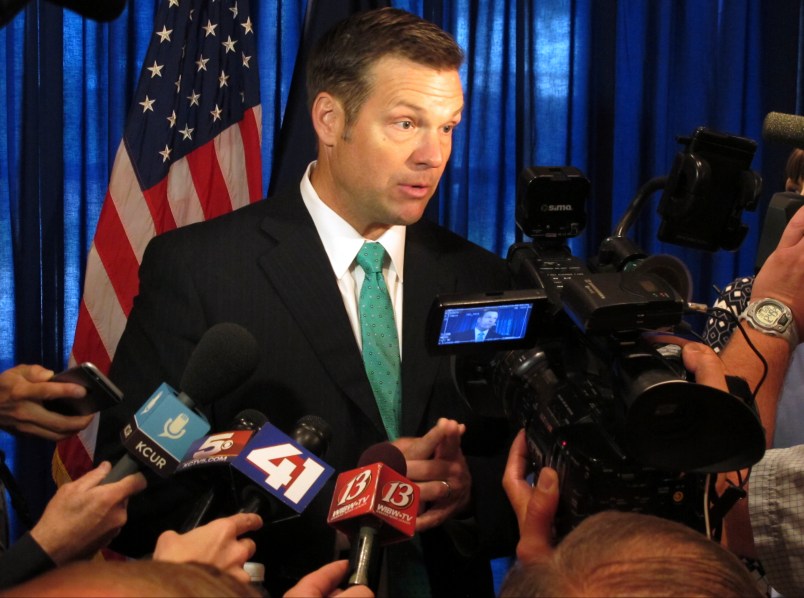Read the latest editor’s brief (Prime access) on this story »
A question lingering for months about President Trump’s now-defunct voter fraud commission and its cooperation with the Department of Homeland Security may now be answered, thanks to a judge’s order in a lawsuit against the commission, which was disbanded last week.
With the announcement of the commission’s dissolution, Trump, its vice chair Kansas Secretary of State Kris Kobach and the White House have suggested that the DHS would take over the commission’s work, which included a controversial request for state voter roll information.
The ACLU of Florida — which was suing the commission and Florida for turning over its state voter roll data — pointed out the mixed messages it had received as to whether the DHS would have access to the data in a court filing on Friday.
The U.S. magistrate judge overseeing the case, Jonathan Goodman, demanded in a order Monday that the commission explain by Thursday where the data is being stored and whether it has been or will be transferred to the DHS.


Since the commission’s creation last Spring, Kobach has suggested that he’d like to compare the states’ voter roll data with DHS data on non-citizens — an endeavor elections experts warn that would likely produce scores of false positives. Facing numerous lawsuits, including one from a Democratic commissioner, the commission resisted to being more transparent about its plans and internal workings.
A record of communications it was forced to release in one of the lawsuits revealed that commission staff had been in talks with DHS, but the content of those conversations and whether DHS was cooperating with Kobach remained hidden.
When the commission was dissolved last week, Trump said in a statement that he had “asked the Department of Homeland Security to review these issues and determine next courses of action,” while Kobach bragged that the move to DHS was a “tactical shift” that would allow the investigations to continue without being stalled by litigation.
An email from a DOJ attorney surfaced in the ACLU Florida lawsuit, however, said that the state data will “not be transferred or utilized” outside the White House digital storage unit where it is currently being held.
The other groups suing the commission have amped up their requests for more information about DHS’ involvement, with a letter to DHS a number of the groups signed requesting it clarify its next steps, as well as a new lawsuit that has been filed since the commission’s disbandment last week.







Hey KKKris, the move to the DHS certainly is limiting judicial intervention in your fascist fantasy of allowing only white GOPers to vote, ain’t it? Good job, jackass.
An email from a DOJ attorney surfaced in the ACLU Florida lawsuit, however, said that the state data will “not be transferred or utilized” outside the White House digital storage unit where it is currently being held.
Is this the only location where the collected info is being stored? I’m betting there’s a ‘back-up’ copy out there somewhere that’s already being crunched.
Something very hinky here. They’re sued to release papers and they disband rather than let anyone know what they’ve done or what they plan to do.
So glad ACLU is on this.
Turns out that, in the public sector, you don’t get to just declare bankruptcy of the shell holding company and walk away.